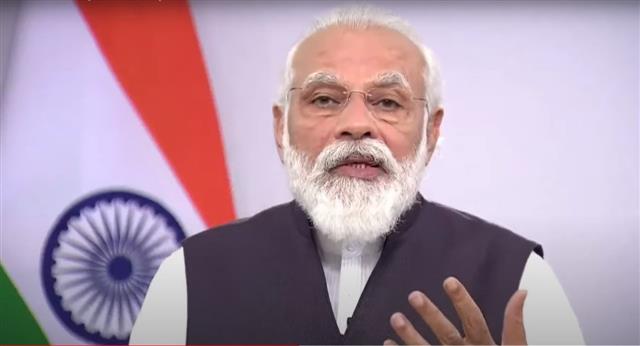Dr. D K Giri
Prime Minister Modi made an impassioned speech on September 22 on the occasion of the 75th anniversary of the United Nations. The crux of his speech was its reform and expansion and India’s membership of the UNSC. He implored, “How long would a country have to wait particularly when the transformational changes happening in that country affect a large part of the world?”
It goes without saying that the geopolitics in the world has changed, the post-war power configurations have changed and it’s a different world. The peace-keepers on the UN Security Council have become a threat to world security and the ‘villains’ of war have become champions of peace and democracy. I am referring to China, which is anti-democratic and anti-peace. How can it be UNSC member with a veto power? Japan and Germany are democracies, how can they be kept out of the UN power structure.
The veto power itself should be done away with. The decisions should be taken on majority vote. One country standing against the values of UN could not be vested with a veto to torpedo the collective will of the world. India, as the largest democracy in the world, can no longer be kept out of UN decision-making process.
But India’s foreign policy has faltered too. Let us see how. It may be recalled that, in 1955, India was offered the membership of the UNSC by the US and others to come in from the Asian region. Jawaharlal Nehru declined it and suggested it should be reserved for China. Ever since, we lost the opportunity.
In the current scenario, the UN, the highest body of the world clearly lacks legitimacy as UNSC remains under-represented. Jeffery Sachs of Columbia University, a leading expert and commentator of world politics, says “Asia’s inadequate representation poses a serious threat to the UN’s legitimacy, which will only increase as the world’s most populous region assumes an increasingly important global role.” He suggests that one possible way to resolve the problem should be to add at least four Asian seats: one permanent seat for India, one shared by Japan and Korea, perhaps on a basis of two-year or one-year rotation, one for the ASEAN countries, representing the group as a single constituency and fourth rotating among other Asian countries.
Let us look at arguments in favour of India’s permanent membership of the Security Council. To start with, India has been a founding member of the UN, although its permanent membership has been elusive, since Nehru denied the offer for some inexplicit reasons. However, the arguments in support are many. To cite a few, India is the second most populous country with 1.3 billion, and is likely to overtake China to become number one. So it’s incongruous that the biggest country in terms of population, one-sixth of the world humanity remains unrepresented in the highest body of the world.
Second, it is the largest democracy in the world. One of the missions of the UN is to foster democracy in the world, and India has remained a beacon light for countries in the whole of Asia as an unflinching democracy. Third, India has been a non-permanent member of the UNSC for six terms spanning 12 years, and has been overwhelmingly re-elected once more to start a new tem from January 2021. It’s time that it becomes a permanent member.
Fourth, India is the 7th largest economy in the world, growing steadily with minor hiccups. It is expected to contribute to world trade and economy, as in 20 years’ time or so, it is expected to overtake the Chinese economy. Fifth, India is already a member of the groups of rich countries like G-4 and G-77, which produce goods and services for the entire world. Sixth, India has the 3rd largest army in the world and has contributed so far 160,000 soldiers to 50 UN peace keeping missions to difficult conflict areas. Indian soldiers have laid down their lives for the freedom and security of countries under domination or in war.
The writer is Professor of International Politics, JMI. INFA
